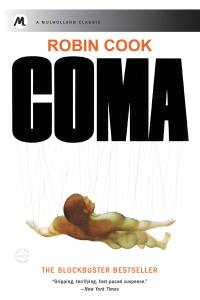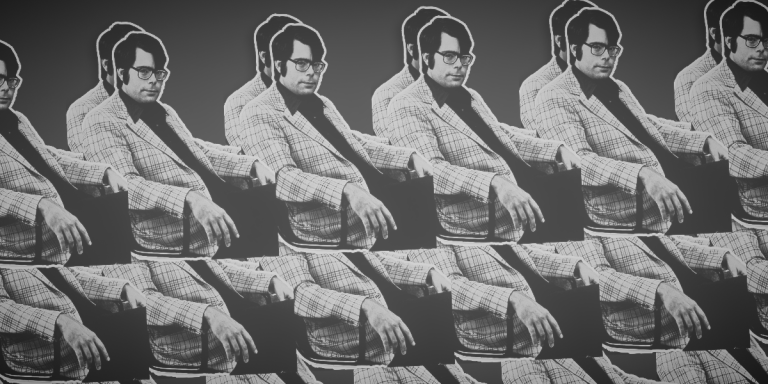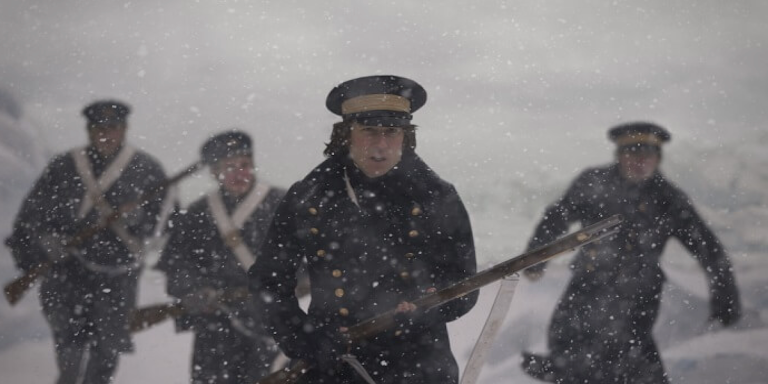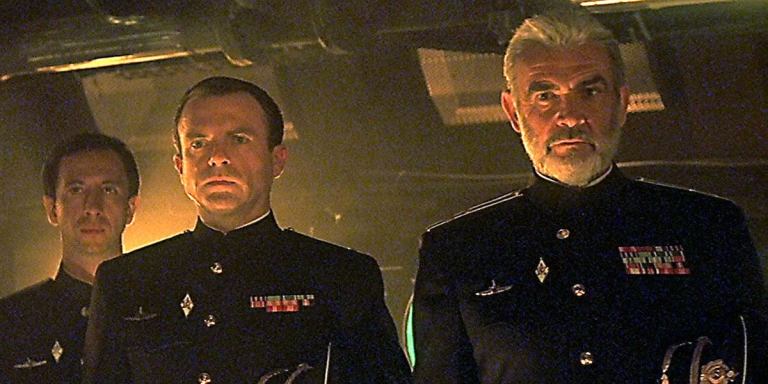Biological Thrillers: A Proposed Canon from Author Chris Holm
 As a former scientist, a lifelong thriller fan, and the author of Child Zero—which takes place in a world reeling from the collapse of the antibiotic era—I’ve spent more time reading, writing, and thinking about biological thrillers than the average bear. To that end, I offer up my proposed canon for the subgenre, whose roots extend far deeper than you might imagine.
As a former scientist, a lifelong thriller fan, and the author of Child Zero—which takes place in a world reeling from the collapse of the antibiotic era—I’ve spent more time reading, writing, and thinking about biological thrillers than the average bear. To that end, I offer up my proposed canon for the subgenre, whose roots extend far deeper than you might imagine.
First, a disclaimer. When constructing a list like this, one is forced to make some difficult decisions. H. G. Wells’ War of the Worlds, despite its microbial deus ex machina, didn’t make the cut, because it’s primarily an alien invasion story. Neither did Richard Matheson’s I Am Legend, since its “pandemic” exists largely to give the vampire tale a patina of verisimilitude. That said, I’m a huge fan of both.
You’ll also note that I’ve included nothing released after 2014. That’s because I started working on Child Zero in 2016, at which point I began avoiding similar works, for fear of unintended influence. Now that Child Zero’s in the can, I’ve got some reading to catch up on—most notably Lawrence Wright’s acclaimed The End of October, to which Child Zero was favorably compared by Publishers Weekly. Now, caveats dispensed, let’s get to the list!
In the summer of 1816, Lord Byron rented a villa in Lake Geneva with his personal physician, John William Polidori. There, he befriended Percy Bysshe Shelley and Shelley’s future wife, Mary Godwin—better known today as Mary Shelley. When a stretch of rain kept them indoors, they entertained themselves by telling horror stories.
Polidori, inspired by a tale that Byron told, penned what many consider to be the first modern vampire story. Godwin, not to be outdone, wrote a timeless masterpiece that singlehandedly invented a new genre—mining not occultism, but science for her scares.
In addition to being an iconic and enduring work, Frankenstein provided the blueprint for countless science fiction tales that followed: a mad scientist, driven by hubris, tampers with the natural order, only to be horrified by the result.
You may think that you’re familiar with Shelley’s story, since it’s been retold countless times, but I daresay the original will still surprise you if you’ve never read it. Not too shabby for a two-hundred-year-old novel, written by a woman of twenty and published anonymously, for fear that she would not be taken seriously.
Child Zero is, in many ways, my homage to Michael Crichton. Crichton’s breakthrough novel, The Andromeda Strain, is the harrowing tale of an extraterrestrial pathogen that wipes out all but two residents of an Arizona town, and the team of scientists working frantically to contain it.
What I love most about The Andromeda Strain is that it plays fair with its microbial malady, dropping clues as deftly as any Golden Era mystery—no surprise, given Crichton’s background in medicine. I mean, c’mon, how many breakneck thrillers hinge upon a pH-based reveal?
The Andromeda Strain wasn’t technically Crichton’s first biological thriller—that’d be 1968’s A Case of Need, released under the pen name Jefferey Hudson—and it wouldn’t be his last, or even his most famous. Still, it changed the game, which is why I’ve chosen to include it.
Ira Levin’s track record as a novelist is astonishing. He published only seven books in his lifetime, but four of them—A Kiss Before Dying, Rosemary's Baby, The Stepford Wives, and The Boys from Brazil—are stone classics.
The Boys from Brazil centers on an aged Nazi hunter, loosely based on Simon Wiesenthal, who catches wind of a plot set into motion by Auschwitz’s so-called Angel of Death, Josef Mengele. Mengele dispatched Nazi agents to murder dozens of men throughout Western Europe and North America—all of them civil servants in their mid-sixties, as Hitler’s father was when he died, and each the adoptive dad to a thirteen-year-old son.
You see where this is going, right? (If not, look away, because spoilers follow.)
Yup, the adopted sons are Hitler clones, and Mengele is attempting to manipulate their upbringing to produce a new Führer—a diabolically clever twist that casts the debate between nature and nurture in a chilling new light.
Cook, like his late friend Michael Crichton, is a physician by training—and this, his breakout novel, laid down the template for countless medical thrillers to come.
Cook’s major contributions to the subgenre are twofold. First, he often mines the inner workings of hospitals to generate drama, presaging such cultural phenomena as St. Elsewhere, ER (notably created by Crichton), and Grey’s Anatomy. Second, his stories are typically inspired by the ethical conundrums that arise at the bleeding edge of biomedical research.
COMA, in particular, centers on a med student who takes it upon herself to investigate a rash of unexplained comas among surgical patients at Boston Memorial, (spoiler) uncovering a black market organ-harvesting scheme in the process.
Oh, and fun fact? The 1978 movie adaptation was written and directed by, you guessed it, Michael Crichton.
Some might view the inclusion of King’s terrifying magnum opus on this list as a stretch, because it’s as much a work of fantasy as it is a pandemic novel. To them I say, you’re not wrong, but the visceral terror I experienced as King’s fictitious superflu spread unchecked across the globe is something that’ll haunt me to my dying day. For that alone, it deserves to be included on this list.
Really, Chris? Crichton again? You’re darn right—because, when it comes to biological thrillers, Michael Crichton is the undisputed king. (Sorry, Stephen.)
I don’t need to tell you what this one’s about, do I? I mean, it spawned a franchise that, at present, comprises three novels, six movies, seven theme park rides, and (apparently) a couple dozen video games.
Sure, I could nitpick about the viability of ancient DNA, Crichton’s chosen method for repairing it, or the liberties he took in his depiction of velociraptors, but c’mon… dude brought back dinosaurs. How freaking cool is that?
Yeah, technically, this one’s nonfiction—but it’s also the scariest book on this list, by a damn sight. An expanded version of his 1992 New Yorker article, “Crisis in the Hot Zone,” Preston’s landmark work explores the terrifying world of viral hemorrhagic fevers, and tells the story of a novel Ebolavirus that caused an outbreak on U.S. soil.
Some experts have accused Preston’s “nonfiction thriller” of sensationalizing the effects of the Ebola virus. I’d argue that it’s difficult to sensationalize a pathogen whose fatality rate tops out around 90%.
Sensationalized or not, Stephen King called THE HOT ZONE’s first chapter “one of the most horrifying things I’ve read in my whole life.” Whether you take that as warning or enticement is up to you.
Okay, epidemiologically speaking, Mandel’s fictitious Georgia flu doesn’t make a ton of sense. It burns way too hot and fast to ever spread across the globe. Mandel—who bristles at genre labels, and considers herself a literary novelist—has admitted as much in interviews.
Thing is, I don’t care. Station Eleven is a gorgeous novel of rare scope and ambition—chronicling not only the destruction of modern civilization at the hands of a deadly microbe, but also the first unsteady steps of what comes next.
It is, to borrow a phrase from Michael Crichton, a story in which life finds a way.
About the Author
Chris Holm is the author of the cross-genre Collector trilogy, which recasts the battle between heaven and hell as old-fashioned crime pulp; the Michael Hendricks thrillers, which feature a hitman who only kills other hitmen; thirty-odd short stories that run the gamut from crime to horror to science fiction; and the scientific thriller Child Zero. He’s also a former molecular biologist with a US patent to his name. Chris’ work has been selected for The Best American Mystery Stories, named a New York Times Editors’ Choice, and won a number of awards, including the 2016 Anthony Award for Best Novel. He lives in Portland, Maine.
It began four years ago with a worldwide uptick of bacterial infections: meningitis in Frankfurt, cholera in Johannesburg, tuberculosis in New Delhi. Although the outbreaks spread aggressively and proved impervious to our drugs of last resort, public health officials initially dismissed them as unrelated.
They were wrong. Antibiotic resistance soon roiled across the globe. Diseases long thought beaten came surging back. The death toll skyrocketed. Then New York City was ravaged by the most heinous act of bioterror the world had ever seen, perpetrated by a new brand of extremist bent on pushing humanity to extinction.
Detective Jacob Gibson, who lost his wife in the 8/17 attack, is home caring for his sick daughter when his partner summons him to a sprawling shantytown in Central Park, the apparent site of a mass murder. Jake is startled to discover that, despite a life of abject squalor, the victims died in perfect health—and his only hope of finding answers is a twelve-year-old boy on the run from some very dangerous men.
By clicking 'Sign Up,' I acknowledge that I have read and agree to Hachette Book Group’s Privacy Policy and Terms of Use
What to Read Next







